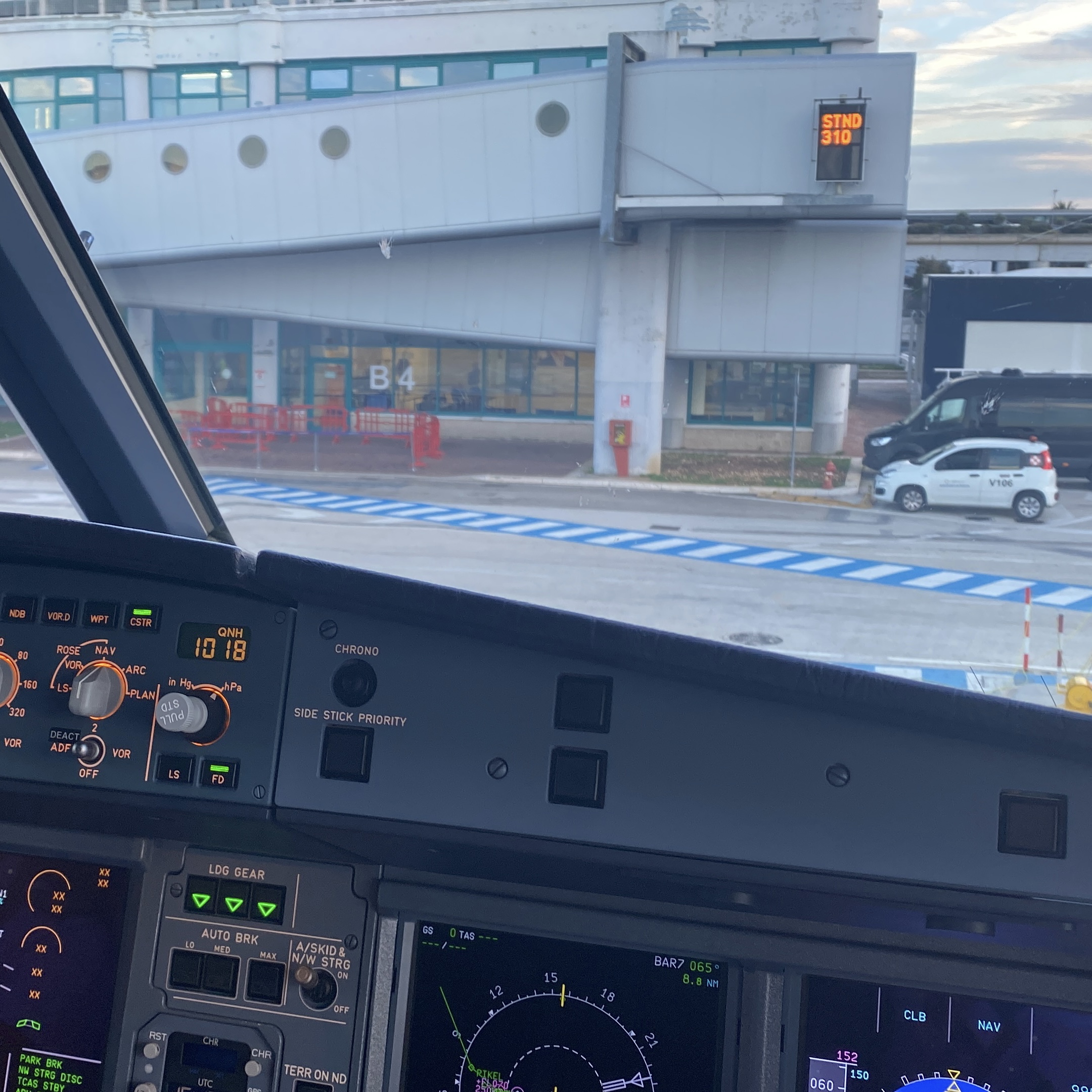What subjects do airline pilots study ? ✈️👨✈️👩✈️
- The Modern Female Pilot
- Jul 11, 2024
- 4 min read
Hello everyone 👋 I am really happy to be back with you on the blog. As you might already know, I have been really busy transitioning from the A320 to A350. Please don’t get upset as I have some amazing news coming up 😊.
My first line training flight will be next month ! I am looking forward to be back on the line and share with you new stories from the flight deck.
These past months spent in training reminded me how much we learn as pilots from the moment we first step into the flight school until our retirement and beyond. As many of you are curious about the process of becoming airline pilots, let me share with you what kind of material we use to brush-up our knowledge and stay current, even when we are off flying 📚 .
Math. Physics. English.
I tend to call these subjects the basics. These are the master subjects that you have to feel confident with before applying for any flight school selection. Most of the flight schools will carefully select the best candidates by using pre-entry tests. Because flight training is a big investement, flight schools tend to select only the most suitable candidates, with the highest chances of passing their ATPL exams with flying colors 👨✈️ 👩✈️ .
The competencies generally assessed during the pre-entry tests are: mental math, geometry, thermodynamics, short-term memory, multitasking, reaction times, spatial orientation and use of English.
If you did well during high-school, these tests are doable with practice and motivation. If these subjects were not really your cup of tea, you might still pass them with some extra tutoring/ individual work. Nothing is too hard as long as you are motivated enough. If you still hesitate if becoming a pilot might be for you, you can check some free PadPilot books 📚 that would give you an idea about the type of subjects we learn during flight school ( https://padpilot.com/free-pilot-training-books/ ).
ATPL exams
Oh yeah ! The hot topic... When I passed my ATPL exams, there were 14 ATPL subjects that we had to pass with a minimum of 75%. A maximum of 6 sittings was allowed.
Usually flight schools have their own syllabus in order to give students best chances to succeed the ATPL exams. A good grade is super important as it might guarantee you a direct ticket to an airline recruitement day. Airlines are rigourous when selecting their pilots so an ATPL average of 90-95% without any resits will definitely put you in front of the candidate list.
I personally used the CAE Oxford books 📚 (https://www.pooleys.com/shop/cae-oxford-aviation/cae-oxford-aviation-easa-atpl-training-manuals-1-14/) and the pad pilot e-books (https://padpilot.com/products/). Moreover, in order to test my knowledge regularly and train for the real exams, I also subscribed to some databases such as : Aviation exam (https://www.aviationexam.com/?gad_source=1&gbraid=0AAAAADOeMSeKCy7KkZj6TzcxO1wVOd4wv&gclid=EAIaIQobChMIwpSx7faehwMVP2lBAh0_rwsJEAAYASAAEgKOavD_BwE ) or ATPL questions ( https://www.atplquestions.com ). As I am not sponsored in any way, I would like to recommend only the tools that I found useful, as I know the cost of these materials is high.
Pilot operating handbook (POH)/ Aircraft flight manual (AFM)
After you successfully pass the theoretical ATPL exams, you can take a big breath, congratulate yourself and .. pass to the next books 😏😅. Once you start flying for your single and multi engine piston ratings ✅, you will work with an experienced instructor. He/ she will guide you, accompany you during the first dual flights and also test your aircraft general knowledge. In order to become familiar with your aircraft (speeds, dimensions, systems, normal and abnormal procedures) you will have to study the POH or AFM. Know these manuals inside out as you will be regularly checked during briefings and debriefings . Knowledge is your tool box to ensure safe flights.
Flight crew operating manual (FCOM). Flight crew technique manual (FCTM)
These manuals are very important for Airbus pilots. To make it simple, it is an advanced version of the POH you used during flight school on your light aircraft. Sure - is more complex now but it still follows the general structure. In these manuals you will find Airbus : systems, limitations, normal and abnormal procedures, performance data, techniques to safely fly your aircraft and so on. Your knowledge of these documents will be regularly assessed during initial type rating course and future proficiency checks.
Operational manual (A,B, C and D)
As you will definitely learn during your ATPL ground classes, the operational manuals are customized by the airlines in order to standardise their pilots. They exaplain everything an airline pilot should know regarding : airline organisation, operational procedures, route and training structure. Airline pilots are required to mantain familiarity with these materials as they detail how the airline wants them to operate the fleet, highlighting also the threats and counter-measures in daily operations. These manuals are usually accompanied by low visibility operations manual (LVO) , dangerous goods manual (DG), standard operating procedures manual (SOP) and many more..
As a conclusion, there are many many books airline pilots regularity use and maintain familiarity with, from the beginning of flight school till the end of their careers. These manuals are the building blocks of their operational knowledge and essential for flight safety. Even though they might feel intimidating at first, let me guarantee : nothing is too hard if you dream to fly ✈️.




Comments